Your brain absolutely relies on the nutrition you feed it, and important nutrients1 missing from your diet can threaten your cognitive performance, mental and emotional health, and even your life. Without certain vitamins, minerals, and nutrients, your brain is starving.
The delicate dance of brain signaling between nerves and neurons, and the release of hormones comes down to what you eat. What you put in makes a huge difference to what comes out. Here’s why:
60-80 percent of all reports of dementia, which has risen dramatically in the past 10 years, is due to Alzheimer’s disease. This can be positively affected2 by your diet. Your brain is gaining. In fact, your brain power peaked around the age of 23 – 27. That doesn’t mean you should just give up at the age of 28. You can slow the aging process of your brain and even grow new neurons.
You also need to get enough exercise, as it helps to promote blood flow through the brain, and to get plenty of sleep at night, and reduce stress, all of which have an effect on brain power, but your diet simply can’t be overlooked.
If you don’t get enough of the following nutrients, then your brain is going to age faster, and your memory, and cognitive power are going to suffer:
1) Omega 3 Fatty Acids.
Most people try to get their Omega 3s from fish and fish oil, but these can be full of mercury, as well as antibiotics and other hormones that are used in fisheries. Your brain thrives on Omega 3s. try chia seeds, Brussels Sprouts, Algai oil, hemp seeds, Walnuts, Flaxseeds and Perilla oil as rich, plant-based sources of Omega 3 fatty acids.
2) Foods Containing Anthocyanins.
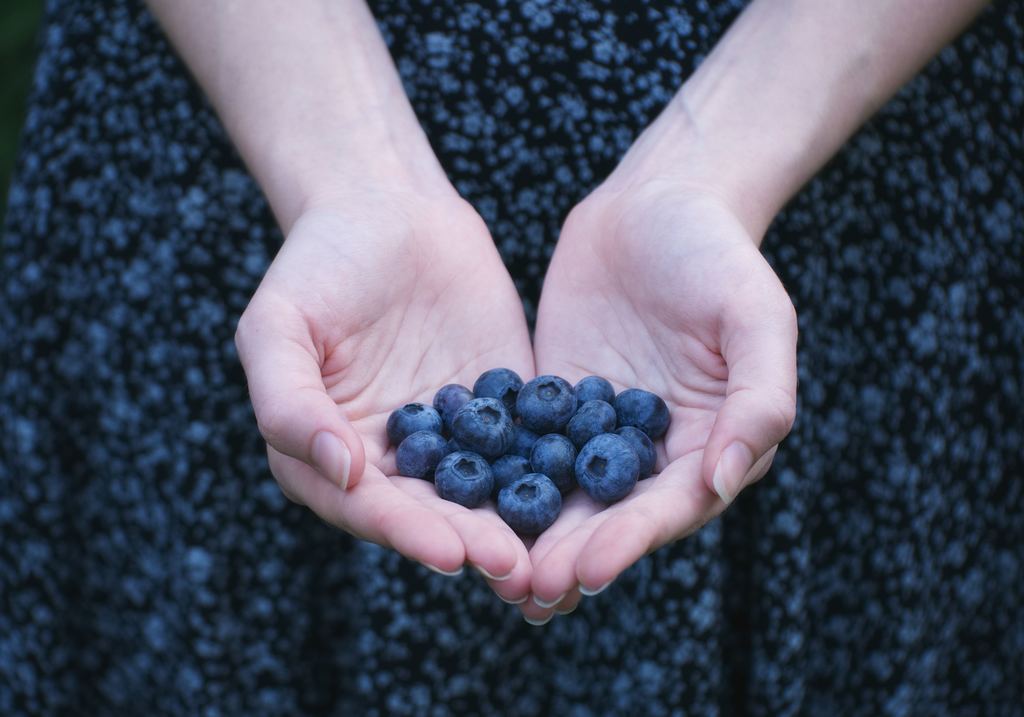
Blueberries and other deeply purple, or bright blue fruits and vegetables contain an antioxidant3 that helps reduce inflammation in the brain and therefor neurodegenerative disease.
3) Turmeric.
Another amazing brain food is turmeric4. Curcumin, one of the compounds in the bright orange-yellow spice5 can help clear opioid plaques, boost serotonin and dopamine, and even boost a brain-derived neurotrophic factor that tends to support brain plasticity6.
4) Small Amounts of Coffee
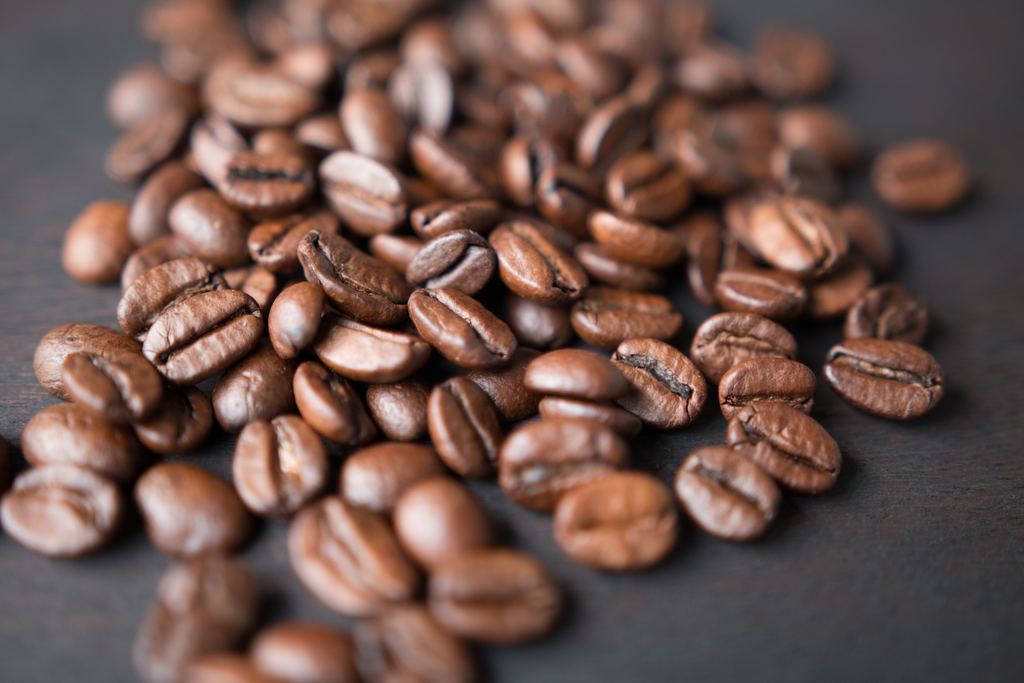
While you need to be careful with the caffeine7 so that you don’t overstimulate your adrenal glands, coffee is full of antioxidants8 and caffeine which can improve your mood, increase alertness, and sharpen your saw. Six healthy antioxidants9 that improve cognitive functioning in coffee include trigonelline, cafestol, chlorogenic acid, phenols, melanoidins, quinine, and caffeine.
5) Sulforaphane
A compound found in cruciferous vegetables offers cellular protection10 to the brain. Specifically, foods11 like broccoli sprouts, broccoli, cauliflower, kale, Bok Choy, collard greens, Brussels Sprouts, tend to involve induction of a group of cytoprotective, Nrf2-driven genes, whose protein products include free radical scavenging and detoxifying enzymes.
6) Dark Chocolate
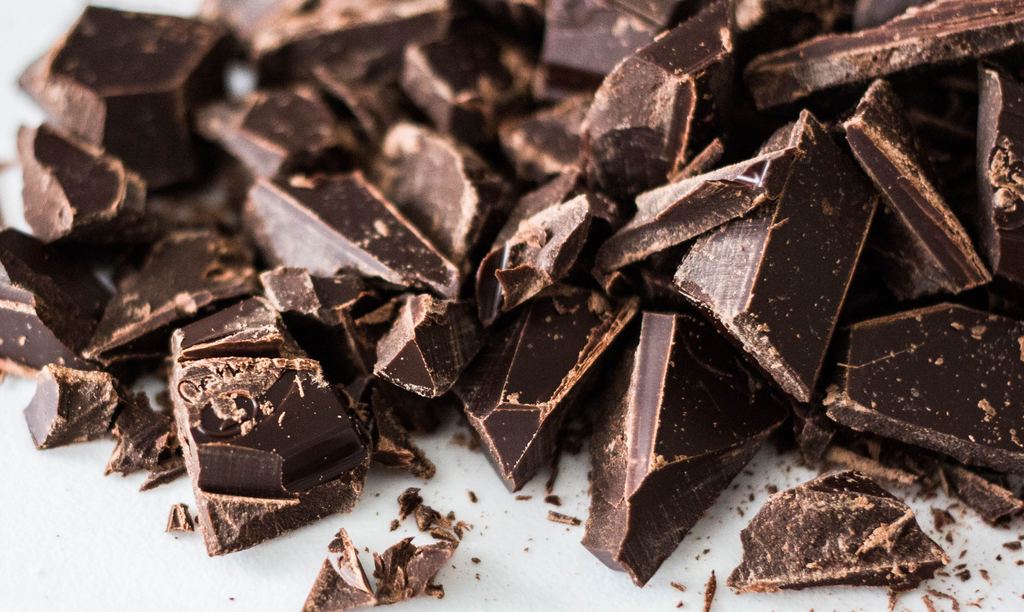
The danger with this one is getting your dark chocolate without a bunch of added refined sugar, as this can spike your glucose levels which is NOT good for brain health. However, chocolate is chock-full of flavonoids that your brain loves. People who eat chocolate regularly tend to perform better on mental tasks12, and they also feel happier13.
7) Choline
Vegetarian sources of this brain-boosting nutrient include peanuts, beets, dark leafy greens, and asparagus. Without choline your body cannot create neurotransmitters. Choline is also responsible for cellular maintenance.
8) Vitamin E

Vitamin E is imperative for brain health14. It can be found in many foods, nuts, and leafy greens among them. Vitamin E protects the your brain cell membranes from free radical damage, and can boost memory.
9) Vitamin C
Another important antioxidant to protect your brain is Vitamin C. It can help stave off dementia, and even help your body repair damaged brain cells15. As you age, eating plenty of Vitamin-C rich foods can boost your mental functioning. Try Kakadu plums, acerola cherries, Goji berries, Rose hips, citrus fruits like oranges, grapefruit, lemons and limes, chili peppers, and leafy greens like spinach and chard. Herbs like fresh thyme, and parsley are also full of Vitamin C.
10) L-theanine
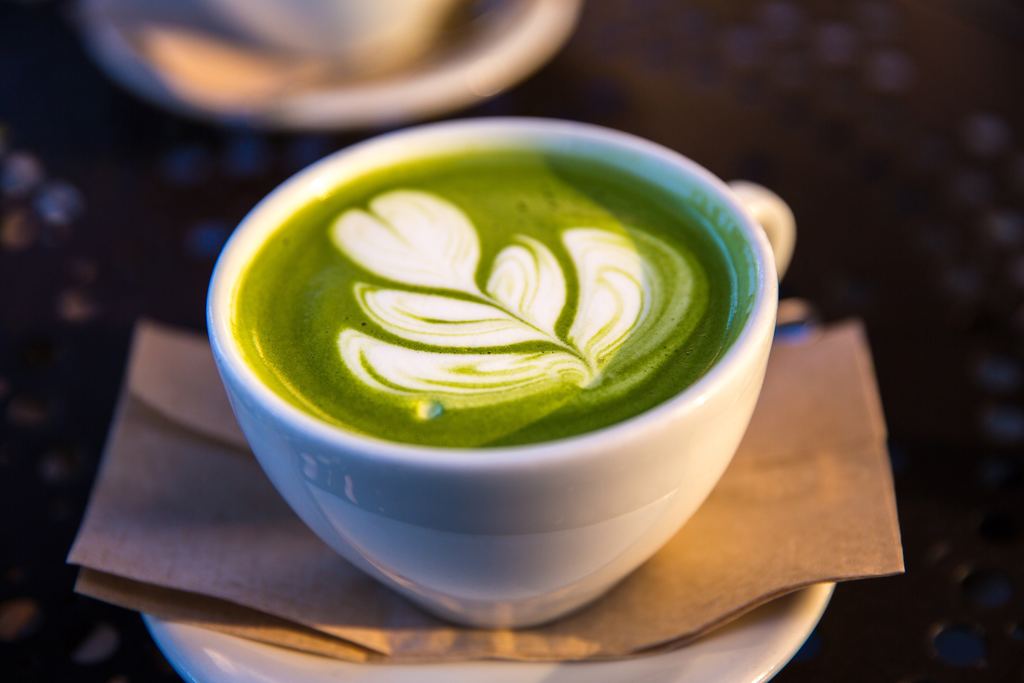
This compound is an amino acid found in green tea, especially Matcha green tea. Matcha happens to increase your sense of calm without making you feel tired due to its ability to help promote GABA production16.
11) EGCGs
EGCGs are known to have an immediate positive effect on the cognitive behavior, reducing17 the chances of developing Alzheimer’s. This is another plant compound in Matcha green tea.
12) Chlorophyll
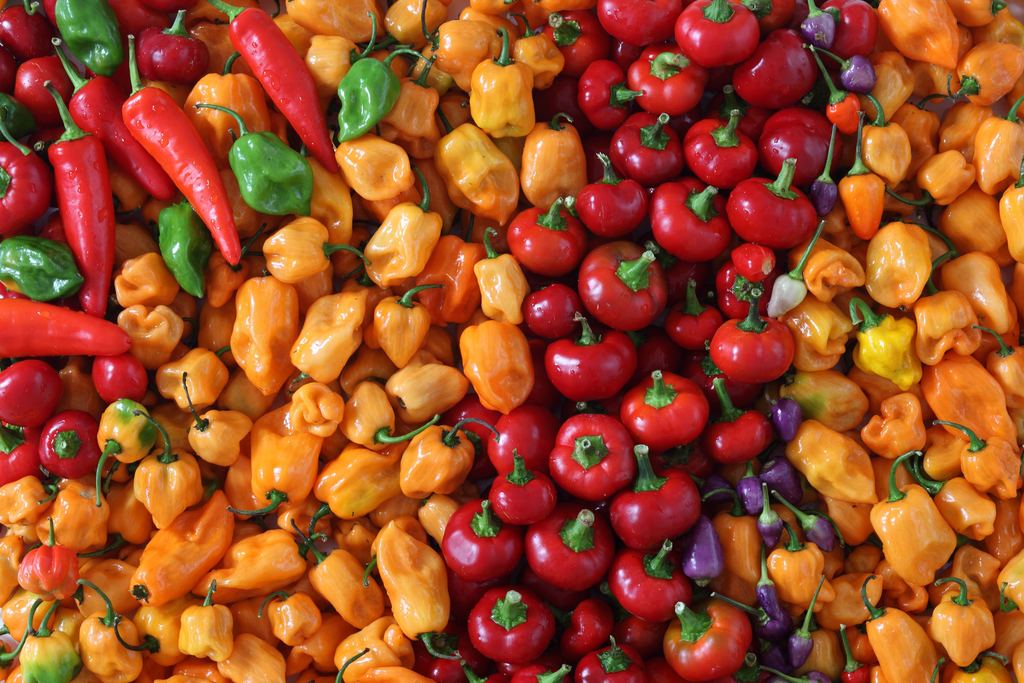
This can help detox the brain18 from heavy metals which can cause brain fog, and dementia. It also just happens to be in Matcha green tea, but also in seaweed and foods that are bright green19 or sometimes red in color. Chlorophyll aids the modulation of mitochondrial ATP by capturing energy from sunlight and transferring that energy to reduce Coenzyme Q10 (CoQ10) to its active biological form, ubiquinol.
13) Minerals like magnesium, zinc, iron and copper
Most people are deficient in important minerals that are neuroprotective because our soil has become so depleted, and the foods that would normally provide these minerals doesn’t any longer. Zinc20 is crucial for your brain’s dendrites. When they don’t work right, you can develop Alzheimer’s disease, dementia or depression. Magnesium21 is essential for memory, but it also helps to regulate your mood and sleep cycles. Iron22 and copper23 are also imperative for a highly functioning brain as they help your neurons to fire. Get more of these minerals with a supplement like Shilajit24 or by eating pumpkin seeds.
If you want better brain health, then you’ve got to feed that grey matter between your ears, right. Start by adding as many of these foods as you can to your diet. Get more exercise to increase blood flow. Get more sleep, lower your stress, and watch your bright ideas grow.
References:
- Gomez-Pinilla,F. (2008, July). Brain foods: the effects of nutrients on brain function.US National Library of Medicine National Institutes of Health.. Retrieved from https://www.ncbi.nlm.nih.gov/pmc/articles/PMC2805706/
- Applegate, L. [UC Davis Health]. (2016, November 30). Brain Foods for Brain Health [Video File]. Retrieved from https://www.youtube.com/watch?v=qa7zGZmiLNk&feature=youtu.be
- Subash, S., Essa, M.M., Al-Adawi, S., Memon, M.A., Manivasagam, T., Akbar, M., (2014, August 15). Neuroprotective effects of berry fruits on neurodegenerative diseases.US National Library of Medicine National Institutes of Health. Retrieved from https://www.ncbi.nlm.nih.gov/pmc/articles/PMC4192974/
- Mishra, S., Palanivelu, K. (20018, Jan-Mar). The effect of curcumin (turmeric) on Alzheimer’s disease: An overview.US National Library of Medicine National Institutes of Health. Retrieved from https://www.ncbi.nlm.nih.gov/pmc/articles/PMC2781139/
- Kulkarni, S.K., Bhutani, M.K., Bishnoi, M. (2008, September 3). Antidepressant activity of curcumin: involvement of serotonin and dopamine system. Retrieved from https://link.springer.com/article/10.1007/s00213-008-1300-y
- Dong,S., Zeng, Z., Mitchell, E.S., Xiu, J., Duan Y., Li, C. Tiwari, J.K., Hu, Y., Cao, X., Zhao Z. (2012, February 16). Curcumin Enhances Neurogenesis and Cognition in Aged Rats: Implications for Transcriptional Interactions Related to Growth and Synaptic Plasticity. Retrieved from https://journals.plos.org/plosone/article?id=10.1371/journal.pone.0031211
- Huang, ZL, Urade, Y., Hayaishi O. (2011) The role of adenosine in the regulation of sleep.US National Library of Medicine National Institutes of Health. Retrieved from https://www.ncbi.nlm.nih.gov/pubmed/21401496
- Ribeiro JA, Sebastiao, AM (2010). Caffeine and adenosine. Retrieved from https://www.ncbi.nlm.nih.gov/pubmed/20164566
- Coffee Science. 6 Antioxidants in Coffee You Probably Didn’t Know Existed. Retrieved from http://www.coffeescience.org/6-antioxidants-in-coffee/
- Dash, PK, Zhao J., Orsi, SA, Zhang M., Moore, AN. (2009, August 28). Sulforaphane improves cognitive function administered following traumatic brain injury.US National Library of Medicine National Institutes of Health. Retrieved from https://www.ncbi.nlm.nih.gov/pmc/articles/PMC2700200/
- Day, J. #232 The Best 12 Food to Reverse Aging with Sulforaphane. Retrieved from https://drjohnday.com/sulforaphane-broccoli-sprouts-best-food-prevent-cancer-heart-disease/
- Crichton GE, Elias MF, Alkerwi A. (2016 May 1). Chocolate intake is associated with better cognitive function: The Maine-Syracuse Longitudinal Study.US National Library of Medicine National Institutes of HealthRetrieved from https://www.ncbi.nlm.nih.gov/pubmed/26873453
- Meier BP, Noly SW, Molokwu OJ. (2017, January 1). The sweet life: The effect of mindful chocolate consumption on mood. US National Library of Medicine National Institutes of Health. Retrieved fromhttps://www.ncbi.nlm.nih.gov/pubmed/27642035
- Perkins AJ, Hendri HC, Callahan CM, Gao S, Unverzagt FW, Xu Y, Hall KS, Hui SL (1999, July 1). Association of antioxidants with memory in a multiethnic elderly sample using the Third National Health and Nutrition Examination Survey. US National Library of Medicine National Institutes of Health. Retrieved from https://www.ncbi.nlm.nih.gov/pubmed/10400551
- Hansen SN, Tveden-Nyoborg P, Lykkesfeldt J., (2014, September 19). Does vitamin C deficiency affect cognitive development and function?.US National Library of Medicine National Institutes of Health. Retrieved from https://www.ncbi.nlm.nih.gov/pubmed/25244370
- Juneja LR, Chu DC, Okubo T, Nagato Y, Yokogoshi H. (1999, June). L-theanine- a unique amino acid of green tea and its relaxation effect in humans. Science Direct. Retrieved from https://www.sciencedirect.com/science/article/abs/pii/S0924224499000448
- Cognitive Vitality. (2016, December 21). EGCG. Retrieved from https://www.alzdiscovery.org/cognitive-vitality/ratings/egcg
- Levy J, (2016, February 4). Chlorophyll Benefits: The Plant Pigment that Heals + Detoxes Better than All Others. Dr. Axe. Retrieved from https://draxe.com/chlorophyll-benefits/
- Mercola. (2018, July 16). Why You Should Eat More Chlorophyll- Rich Foods. Retrieved from https://articles.mercola.com/sites/articles/archive/2018/07/16/why-you-should-eat-more-chlorophyll-rich-foods.aspx
- Yuan Y, Niu F, Liu Y, Lu N. (2014, June). Zinc and its effects on oxidative stress in Alzheimer’s disease. US National Library of Medicine National Institutes of Health. Retrieved from https://www.ncbi.nlm.nih.gov/pubmed/24522515
- de Baaj JH, Hoenderop JG, Bindels RJ. (2015 January). Magnesium in man: implications for health and disease.US National Library of Medicine National Institutes of Health. Retrieved from https://www.ncbi.nlm.nih.gov/pubmed/25540137
- Munoz P, Humeres A. (2012, August). Iron deficiency on neuronal function.US National Library of Medicine National Institutes of Health. Retrieved fromhttps://www.ncbi.nlm.nih.gov/pubmed/22639188
- Opazo CM, Greenough MA, Bush AI. (2014 July). Copper: from neurotransmission to neuroproteostasis.US National Library of Medicine National Institutes of Health. Retrieved from https://www.ncbi.nlm.nih.gov/pubmed/25071552
- Edwards, R. (2016, August 31). Shilajit: The Ancient Brain- Boosting, Hormone-REgulating Medicinal Herb. Dr. Axe. Retrieved from https://draxe.com/shilajit/
